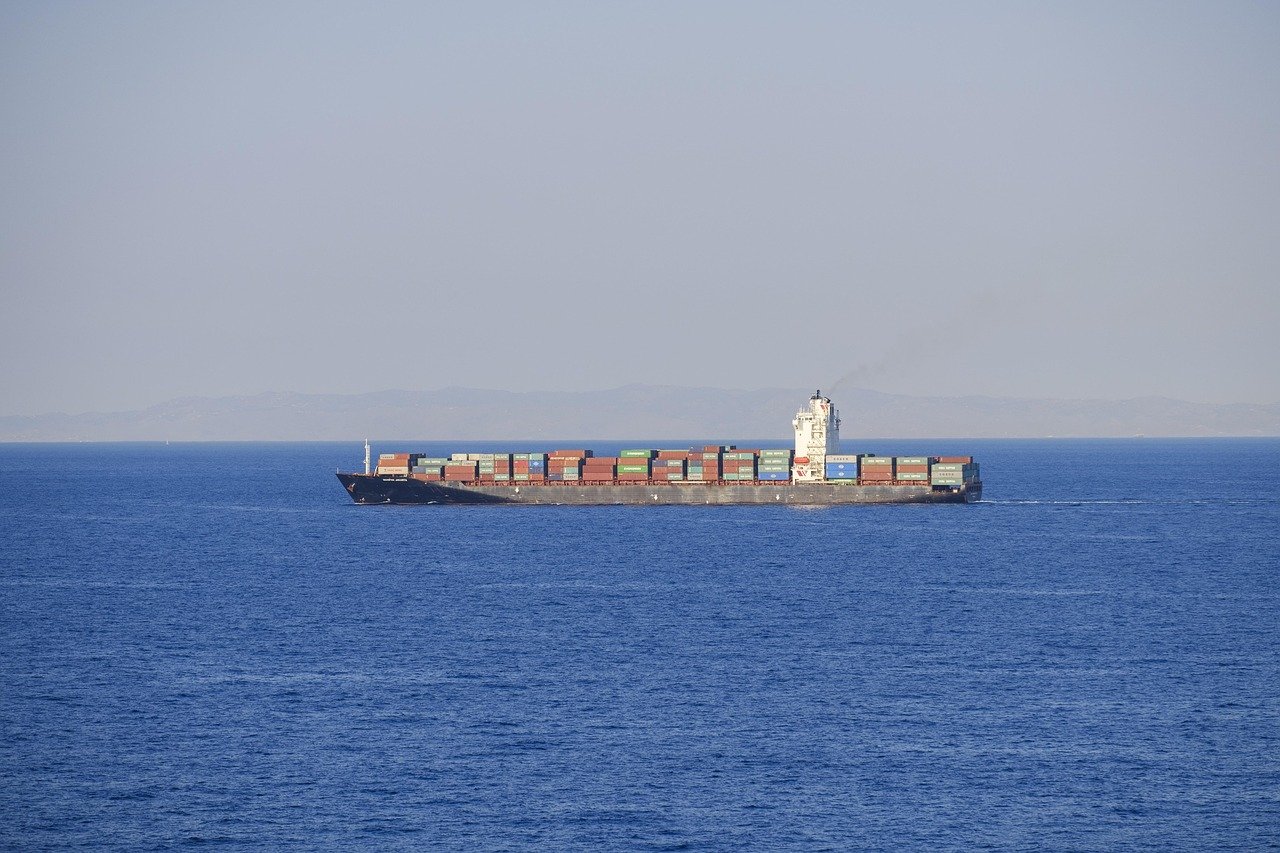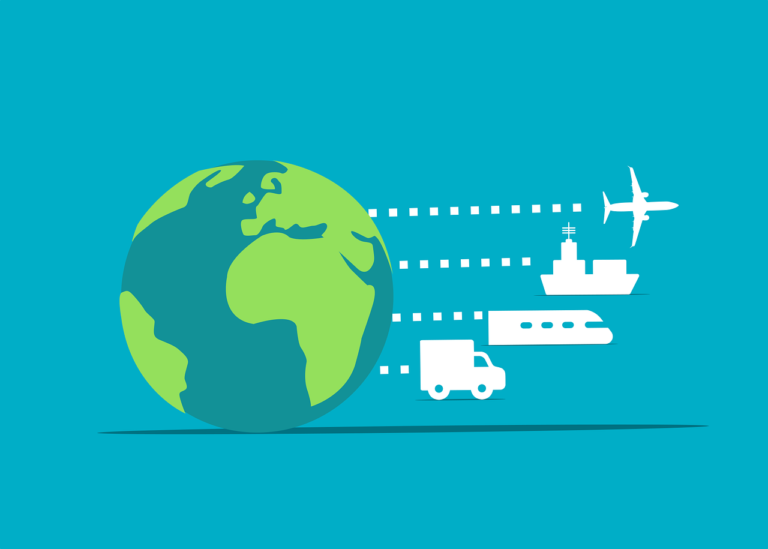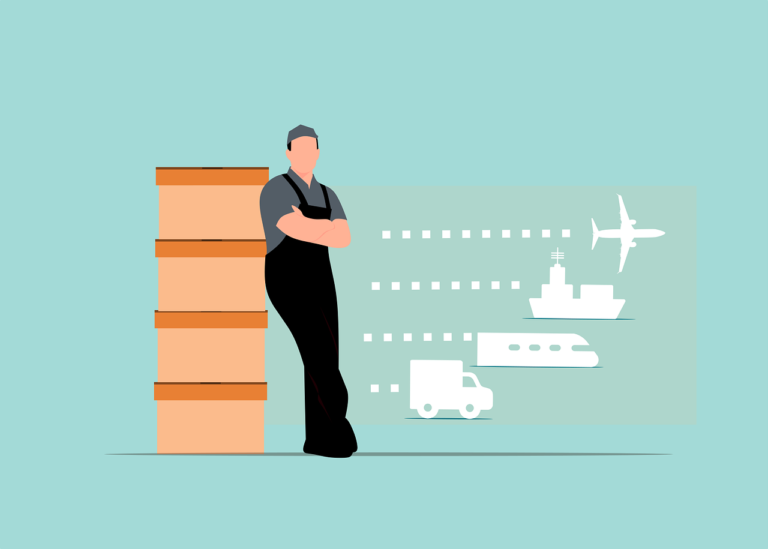
Introduction to Freight Shipping
Freight shipping plays a crucial role in the global supply chain, allowing businesses to transport large quantities of goods efficiently and cost-effectively. It involves moving bulk shipments via land, air, or sea, making it an essential solution for industries that rely on large-scale distribution. Freight shipping services are offered by major carriers like FedEx Freight Economy, UPS Freight, and DHL Freight, providing a variety of options to meet specific shipping needs. Whether you are a business seeking to move heavy cargo or an individual requiring large-item delivery, understanding how freight shipping works is key to optimizing logistics and controlling costs.
What Is Freight Shipping?
Freight shipping refers to the process of transporting large or heavy goods over long distances. Unlike small parcel delivery, which handles individual packages, freight shipping is designed for shipments that exceed weight and size limits. Freight can be transported using various methods, including truck (ground freight), plane (air freight), and ship (ocean freight). This service is ideal for businesses needing to move bulk products across regions, countries, or even continents. FedEx Freight Economy and UPS Freight offer cost-efficient freight options, while premium services like FedEx Freight Priority ensure faster delivery. The choice between economy and priority depends on budget and delivery urgency.

Types of Freight Shipping
Freight shipping is categorized into several methods depending on shipment size, urgency, and destination. Less-than-Truckload (LTL) shipping is used for smaller shipments that do not require a full trailer, offering cost savings by sharing truck space with other customers. Full-Truckload (FTL) is ideal for large shipments that fill an entire trailer, providing direct delivery with reduced handling. Air Freight is the fastest method, suitable for time-sensitive international shipments, while Ocean Freight is cost-effective for large, non-urgent international deliveries. Ground Freight, including FedEx Ground Economy, is commonly used for domestic transport, balancing cost and speed.
FedEx Freight Economy
FedEx Freight Economy is a cost-effective solution for less time-sensitive freight shipments. It offers reliable delivery with extensive coverage across the United States. This service is ideal for businesses seeking to transport large or heavy items without incurring high costs. FedEx Freight Economy is particularly useful for palletized shipments and provides tracking options for enhanced visibility. While it is slower than FedEx Freight Priority, it remains a popular choice for companies focused on managing logistics expenses without compromising delivery reliability.
FedEx Ground Economy
FedEx Ground Economy is tailored for lightweight packages and e-commerce shipments that do not require urgent delivery. This service offers cost-efficient ground transport for businesses and individuals sending non-urgent packages. It is suitable for small businesses aiming to reduce shipping costs while maintaining reliable delivery. FedEx Ground Economy integrates with various e-commerce platforms, making it easier for retailers to manage bulk shipments while ensuring timely customer delivery.
Economy International Shipping
Economy international shipping provides affordable cross-border freight delivery for businesses expanding into global markets. FedEx International Economy and UPS Worldwide Economy offer reliable and cost-effective shipping solutions for international freight. This service is ideal for companies looking to balance shipping speed with budget considerations. Economy international shipping typically involves longer transit times compared to premium services but ensures secure and efficient transportation. It is widely used for non-urgent global shipments where affordability is the primary concern.
FedEx Economy Shipping
FedEx Economy Shipping includes both domestic and international solutions for cost-sensitive freight shipments. It is designed for businesses seeking an affordable alternative without sacrificing reliability. This service covers a range of shipping needs, from small parcels to large freight, and includes tracking for transparency. FedEx Freight Economy is part of this suite, providing specialized services for heavy cargo while ensuring economical pricing.
FedEx Freight Economy vs. FedEx Freight Priority
While FedEx Freight Economy focuses on affordability and longer delivery times, FedEx Freight Priority emphasizes speed for urgent shipments. Businesses choose FedEx Freight Economy for non-time-sensitive goods where cost savings are a priority. In contrast, FedEx Freight Priority is ideal for high-value or urgent shipments requiring quicker transit. Both services offer comprehensive tracking and secure handling, allowing companies to choose the best option based on their logistics needs and customer demands.
Budget Economy Shipping
Budget economy shipping provides a low-cost solution for freight and parcel delivery, appealing to small businesses and individual shippers. It involves longer transit times but significant savings compared to express shipping. Carriers like FedEx Ground Economy and UPS Economy Shipping offer budget-friendly solutions for domestic and international deliveries. This method is particularly useful for non-urgent shipments where delivery time is flexible but cost control is essential.
Ground Freight Shipping
Ground freight shipping is one of the most common methods for transporting goods overland. It includes Less-than-Truckload (LTL) and Full-Truckload (FTL) options, depending on the shipment size. UPS Ground Freight and FedEx Ground Economy are popular choices for businesses seeking reliable and cost-effective ground transport. Ground freight is ideal for domestic shipments, providing flexible delivery schedules and efficient handling of bulk goods. It is especially beneficial for companies distributing products regionally or nationally.
UPS Economy Shipping
UPS Economy Shipping offers an affordable delivery option for large shipments. This service is perfect for businesses looking to reduce logistics costs while maintaining reliable delivery. UPS Worldwide Economy extends these benefits to international markets, providing a budget-friendly alternative for cross-border shipments. UPS Freight services cater to bulk deliveries and offer a range of solutions to meet diverse shipping needs. With extensive tracking and secure transport, UPS ensures that economy shipments are handled with care.
Types of Freight Shipping
Freight shipping is categorized into several methods depending on shipment size, urgency, and destination. Less-than-Truckload (LTL) shipping is used for smaller shipments that do not require a full trailer, offering cost savings by sharing truck space with other customers. Full-Truckload (FTL) is ideal for large shipments that fill an entire trailer, providing direct delivery with reduced handling. Air Freight is the fastest method, suitable for time-sensitive international shipments, while Ocean Freight is cost-effective for large, non-urgent international deliveries. Ground Freight, including FedEx Ground Economy, is commonly used for domestic transport, balancing cost and speed.
LTL Truck Freight
LTL truck freight refers to the transportation of smaller freight loads that do not require a full truck. It is an economical option for businesses looking to ship moderate quantities of goods. LTL services like FedEx Freight Economy and UPS Freight combine multiple shipments in one truck, reducing costs while ensuring reliable delivery. This method is ideal for companies seeking to minimize shipping expenses without requiring the exclusivity of a full truck.
LTL Freight Shipping
LTL freight shipping provides an affordable alternative for shipping loads too large for standard parcel services but too small for a full truck. This option is favored by small-to-medium-sized businesses managing regional or national distribution. With services like FedEx Freight Economy and UPS LTL, businesses can ensure efficient delivery while controlling costs. It also allows for real-time tracking and secure handling throughout the delivery process.
Less Than Truckload Freight
The less-than-truckload (LTL) freight model is perfect for shipments that do not need an entire truck. Businesses share trailer space with other shippers, reducing individual shipping costs. This method supports flexible scheduling and is suitable for shipments ranging from 150 to 15,000 pounds. Major carriers like FedEx Freight and UPS offer reliable LTL services for both domestic and international transport.
Shipping and Freight
Understanding the difference between shipping and freight is essential for optimizing logistics. While shipping typically refers to small parcels and individual items, freight covers larger, bulkier shipments transported via truck, air, or ocean. Businesses often rely on freight for large-scale product movement, whereas shipping serves individual consumers or smaller deliveries. Both services provide tracking, secure handling, and customized delivery options tailored to various industries.
Transportation Freight
Transportation freight refers to the entire process of moving bulk goods through various channels. It includes domestic and international shipments by land, air, or sea. Key players in the transportation freight sector include FedEx, UPS, and DHL, offering a range of economy and premium services. Businesses select transportation freight solutions based on their needs for cost, speed, and shipment size.
Cheap Freight Shipping
Businesses seeking cheap freight shipping can leverage economy services such as FedEx Freight Economy and UPS Ground Freight. By consolidating shipments, choosing slower delivery options, and negotiating bulk discounts, companies can reduce costs without sacrificing reliability. Online freight marketplaces and comparison tools also help identify the most affordable carriers for domestic and international deliveries.
Air Freight Shipping
Air freight shipping is the fastest option for long-distance and international deliveries. It is ideal for urgent, high-value goods requiring swift transit. Major carriers like FedEx Express and UPS Air Freight offer dedicated air freight services with advanced tracking and global coverage. Although more expensive than ground or ocean freight, air freight shipping ensures rapid delivery and secure handling for time-sensitive shipments.
Difference Between Economy and Standard Shipping
The key difference between economy shipping and standard shipping lies in cost and delivery speed. Economy shipping is more affordable but takes longer to deliver, making it ideal for non-urgent shipments. Standard shipping, while more expensive, offers faster delivery times and more predictable service. Businesses use economy shipping for cost-effective logistics, especially for bulk and international shipments, while standard shipping is preferred for quicker domestic deliveries. Understanding these differences helps businesses optimize their shipping strategy according to budget and delivery timelines.
Conclusion
Freight shipping is a vital component of modern logistics, providing diverse solutions for domestic and international transportation. With options like FedEx Freight Economy, UPS Freight, and ground freight shipping, businesses can select services that balance cost and delivery speed. Understanding the nuances of economy shipping, including its benefits and limitations, allows companies to optimize their supply chains effectively. Whether shipping large quantities domestically or expanding globally, choosing the right freight service ensures efficient, cost-effective delivery.
FAQs About Freight Shipping
1. What is freight shipping?
Freight shipping is the transportation of large or heavy goods using trucks, planes, or ships. It is used for bulk shipments that exceed standard parcel limits.
2. How does FedEx Freight Economy work?
FedEx Freight Economy offers cost-effective delivery for non-urgent, palletized shipments with reliable tracking and extensive U.S. coverage.
3. What is the difference between LTL and FTL?
LTL (Less-than-Truckload) is for smaller shipments sharing truck space, while FTL (Full-Truckload) is for larger shipments filling an entire trailer.
4. Is ground freight shipping reliable?
Yes, ground freight shipping is reliable for domestic deliveries. It offers flexible schedules and cost-effective transport for large goods.
5. What is the difference between economy and standard shipping?
Economy shipping is cheaper but slower, ideal for non-urgent shipments, while standard shipping is faster and provides more predictable delivery timelines.






